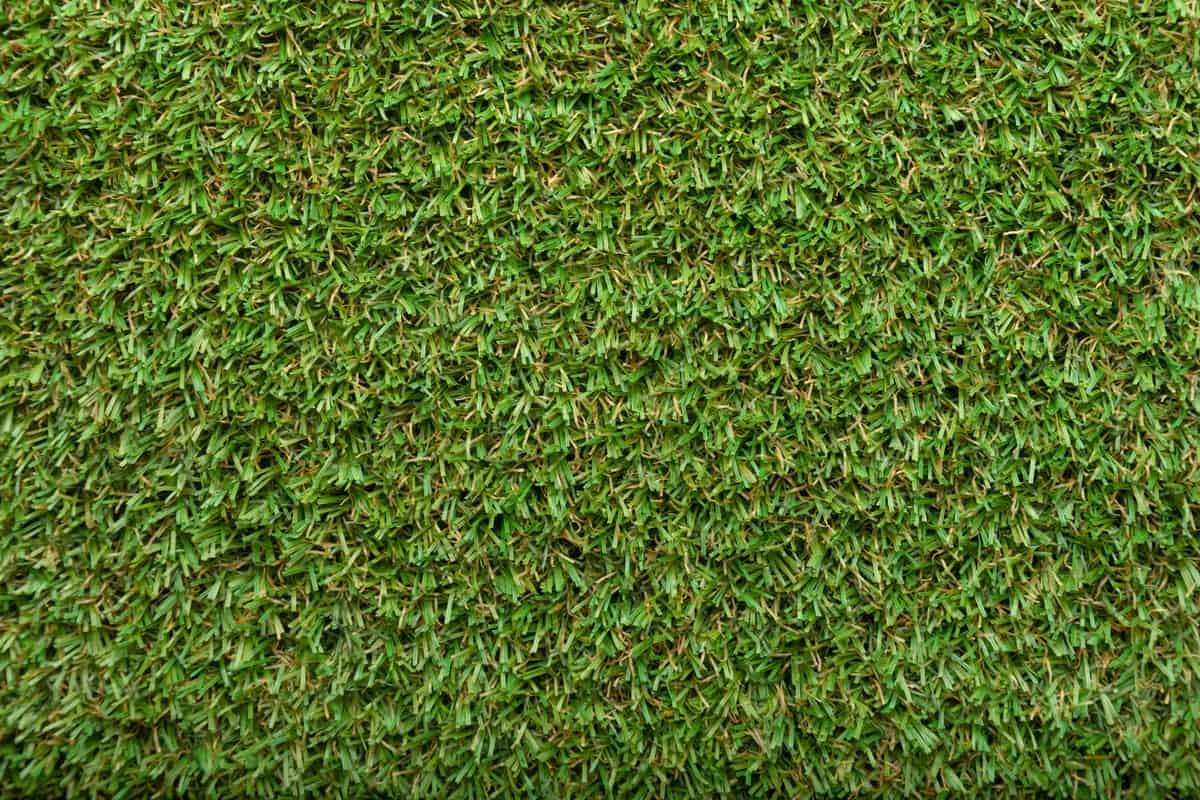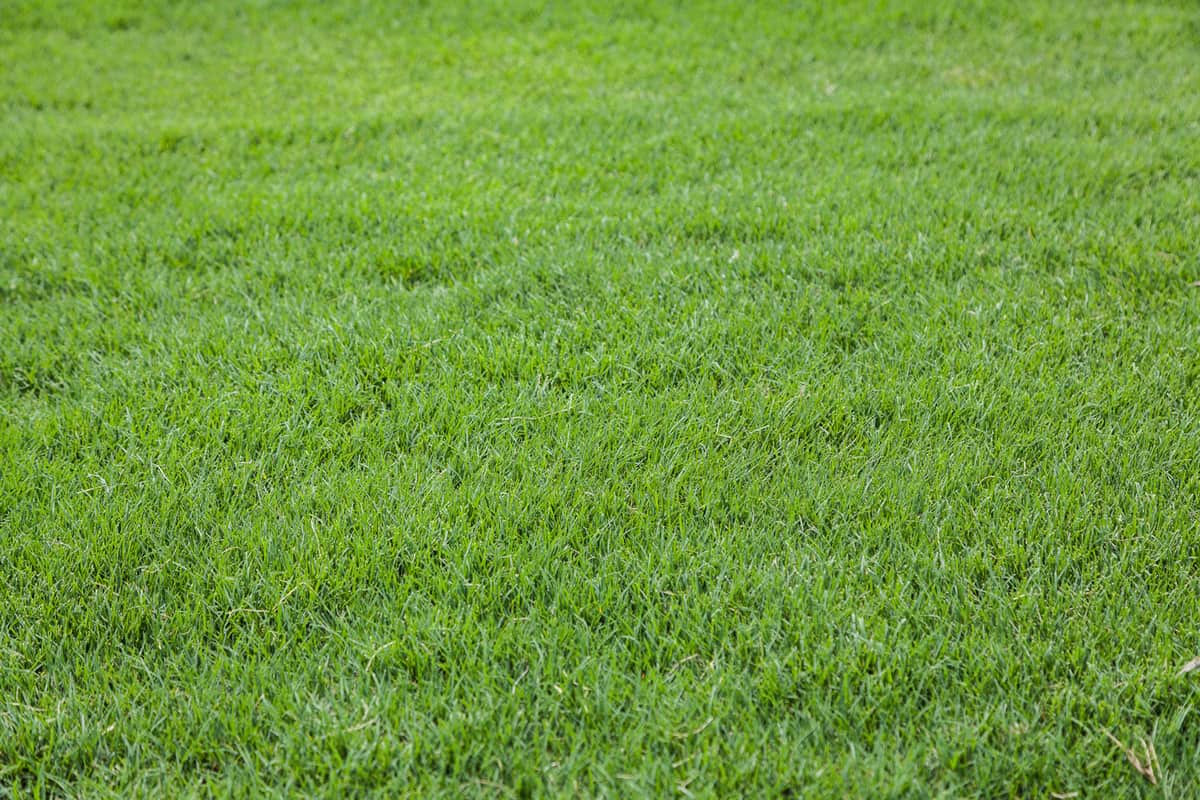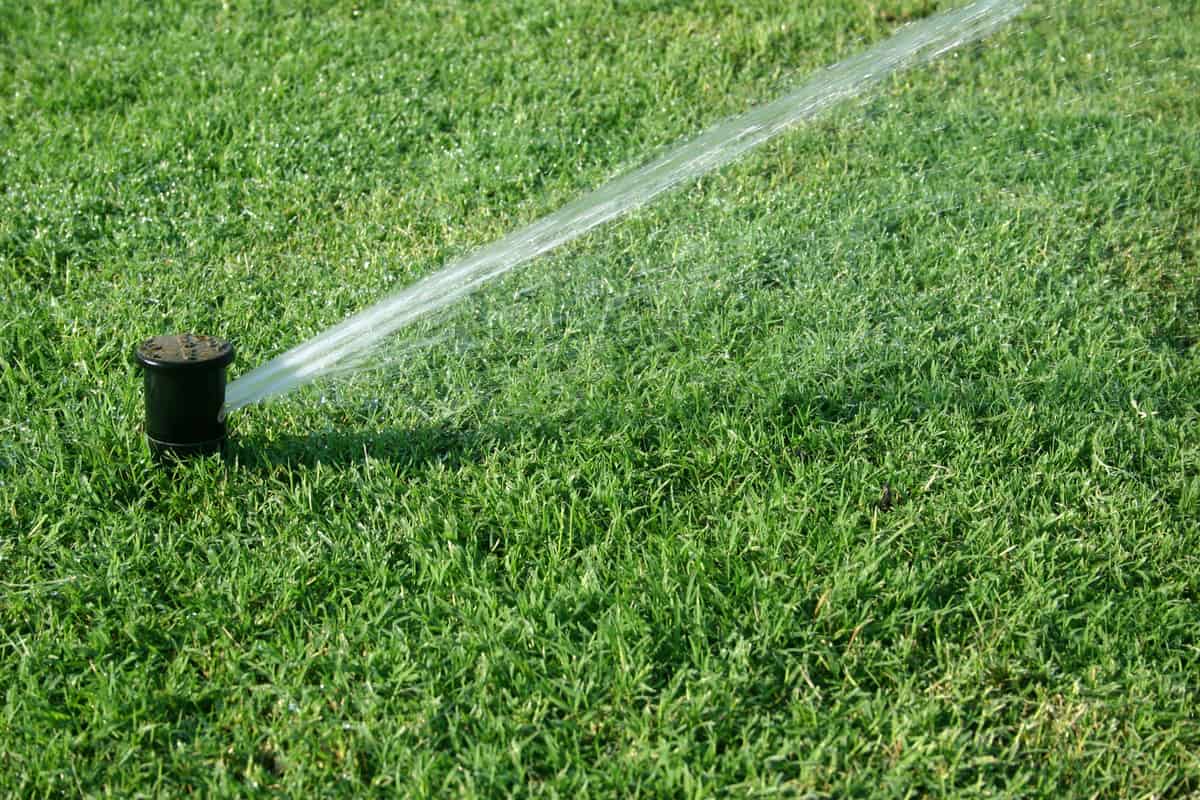Are you considering adding Bermuda grass to your garden but want to learn more about the level of maintenance required for species? Well, you've come to the right place. We've put together this guide to bring you all the information you need in one place.
Generally, weed control for Bermuda grass should begin in the spring and continue as needed throughout the year. Bermuda grass should be fed in mid-spring when it has started to turn green again, and the danger of frost has passed.
You're probably wondering the best way to go about weeding and fertilizing your Bermuda grass. And how often does it need to be cut? Keep reading to learn all about Bermuda grass and how to care for it properly.

What Is The Best Time Of Year To Weed And Feed Bermuda Grass?

You'll want to start using weed preventative once your local temperatures stay consistently above freezing in early spring. Begin feeding once your grass looks mostly green again, usually between March and April.
Weeds should be monitored throughout the growing months and addressed as soon as possible.
How To Weed Bermuda Grass
The best way to keep unwanted weeds out of your Bermuda grass is to start with pre-emergents. A pre-emergent will prevent weeds before they even begin to grow, but be sure to choose a pre-emergent that works with Bermuda grass.
If you need to kill weeds that have already established themselves in your Bermuda grass, you will need to buy herbicide specific to the problem weeds.
Scotts Weed Ex
This pre-emergent is safe for use with Bermuda grass and will prevent crabgrass, chickweed, foxtail, and a variety of other weeds.
See this pre-emergent on Amazon here.
How Do You Feed Bermuda Grass?
You should fertilize Bermudagrass with a formula high in nitrogen and low in potassium and phosphorus. Most general lawn fertilizers will work out just fine for regular feeding.
You can spread liquid fertilizers through a hose and place crystalized fertilizers in a spreader.
How Often Do I Need To Fertilize Bermuda Grass?

Bermudagrass can be fertilized as often as once a month in the spring. You can switch to a slow-release formula during the summer months to reduce the number of feedings needed while keeping your lawn lush and green.
Avoid overfertilizing your lawn to avoid causing any damage.
Scotts Turf Builder Lawn Food
This lawn fertilizer is specifically for southern lawn varieties, like Bermuda grass. Its formulated to improve the growth and health of lawns that are often the subject of high temperatures and drought.
What Is Bermuda Grass?
Bermuda grass is a fast-growing and hardy type of grass that grows well in the southern United States and other warm areas, like Africa and Australia. It's pretty resistant to heat and drought, and it spreads fast, making it a popular option for sports fields and golf courses.
Bermuda grass has many names like Scutch Grass, Bahama Grass, and Wiregrass, but its scientific name is Cynodon Dactylon. This grass has a wiry texture and a rich, dark green shade. It also bounces back quickly from abuse, making it an excellent choice for busy, well-used lawns.
What Other Maintenance Is Required For A Bermuda Grass Lawn?
Besides feeding and weeding your Bermuda grass lawn, it will also require several other forms of basic lawn care. Regular watering is a necessity for a healthy lawn of any grass species.
It's also beneficial to aerate your lawn annually or semi-annually to promote healthy growth.
Scotts Turf Builder Bermuda Grass
This bag of Bermuda grass seeds is available in multiple sizes to meet the needs of your lawn. The seeds are coated in a formula that helps them retain moisture, promoting faster growth.
Click here to see these seeds on Amazon.
How Often Should You Aerate A Bermuda Grass Lawn?

Aerating your lawn removes thatch and loosens the soil to improve the soil's overall quality. As with most lawns, You should aerate Bermuda grass lawns once per year.
If your lawn is very healthy or dealing with sandy soil, you can aerate as little as every three years.
How To Aerate A Bermuda Grass Lawn
There are liquid formulas, machines, and hand tools that you can use to aerate your lawn. A machine or formula may be the quickest option for large yards, but hand tools are just as effective for smaller ones.
Follow the instructions included for whichever method you choose.
Yard Butler Manual Aerator
This aerator is hand-powered and effective, ideal for small to medium-sized yards. It's easy to use and offers three-and-a-half-inch prongs for deep aeration.
Click here to see this aerator on Amazon.
How Often Should You Water Bermuda Grass?
A Bermuda grass lawn needs to be watered at least once a week with about an inch of water. Watering two to three times a week might be necessary during dry spells or extreme heat.
For areas with notable droughts or high heat, consider adding moisture-retaining soil to your yard to reduce watering.
During What Seasons Should You Water A Bermuda Grass Lawn?

During the summer, fall, and winter, you should ensure your lawn receives at least an inch of water per week. In the spring, you can typically count on a good amount of rainfall or snowmelt to contribute to your lawn, so only about half an inch of water is necessary.
Bermuda grass will need moisture to thrive as a lawn during all seasons.
WAGAYI Sprinkle Timer
This sprinkler timer will ensure that your lawn gets the perfect amount of water every week, minimizing the risk of over or under-watering.
Click here to see this timer on Amazon.
Can You Overwater Bermuda Grass?
Yes, Bermuda grass can be overwatered, which results in compacted soil that can contribute to a decreased growth rate and muddy conditions. Overwatering will create a lawn with a squishy feel underfoot, and in severe cases, it can lead to dead patches of grass.
If you suspect that your lawn has been overwatered, allow it to dry out for a week or two before resuming your regular watering routine.
What's The Best Way To Water Bermuda Grass?
Bermuda grass, like most lawns, is best watered directly from the hose to avoid water waste and ensure an adequately drenched yard.
Sprinklers are known to lose water through evaporation, making them a less efficient method; however, they are suitable for smaller lawns. When watering Bermuda grass, drench the soil well during your weekly or bi-weekly watering.
Flexi Hose Garden Hose
This hose's non-kink feature and expandable length make it an excellent addition to the toolshed, and it makes watering the lawn a much easier task.
Click here to see this hose on Amazon.
How Often Should I Mow Bermuda Grass?
Typically, Bermuda grass will need to be mowed at least once a week to keep it at the optimal length. The frequency will vary depending on weather conditions and the lawn's health.
It's standard to keep Bermuda grass between one and two inches high, cutting it when it reaches between three and four inches in height.
Does Bermuda Grass Spread?
Yes, the rapid growth rate of Bermuda grass contributes to its ability to spread quickly and easily. It's vital to use a good, solid, edging around areas where you don't want the grass to spread, like flower beds.
Bermuda grass is considered an invasive weed in some areas because of its propagation rate.
Easy Flex Landscape Edging
This landscape edging is easy to install due to its no-dig feature. It's also thick and tall enough to prevent Bermuda grass from creeping over it and preventing its spread.
View this landscape edging on Amazon.
To Wrap It Up
Now that you know the best ways to care for a Bermuda grass lawn, you're ready to decide whether or not this grass type is right for your yard. Remember, it's a good, hardy option for high-traffic lawns that are subject to regular abuse. Have fun landscaping and enjoy your new yard!
If you're getting ready to seed your lawn, read our article "How Long Can Grass Seed Go Without Water?" for tips on establishing a lawn from seed.
For more tips on lawn maintenance and how to get your yard in pristine shape, read our article "How Early Is Too Early To Mow Your Yard?"







